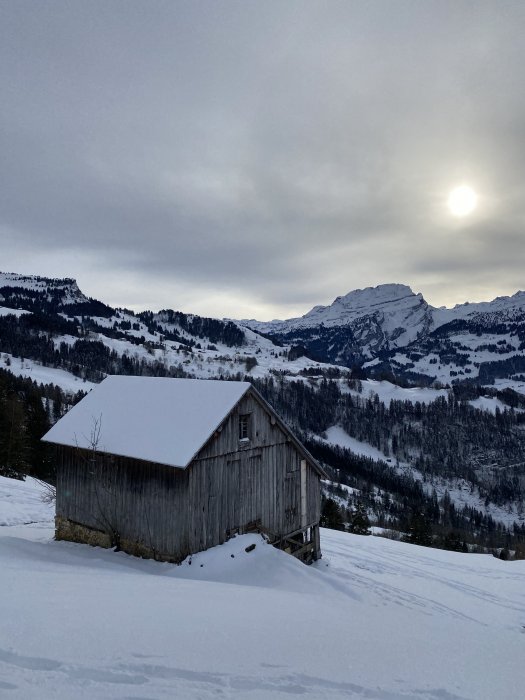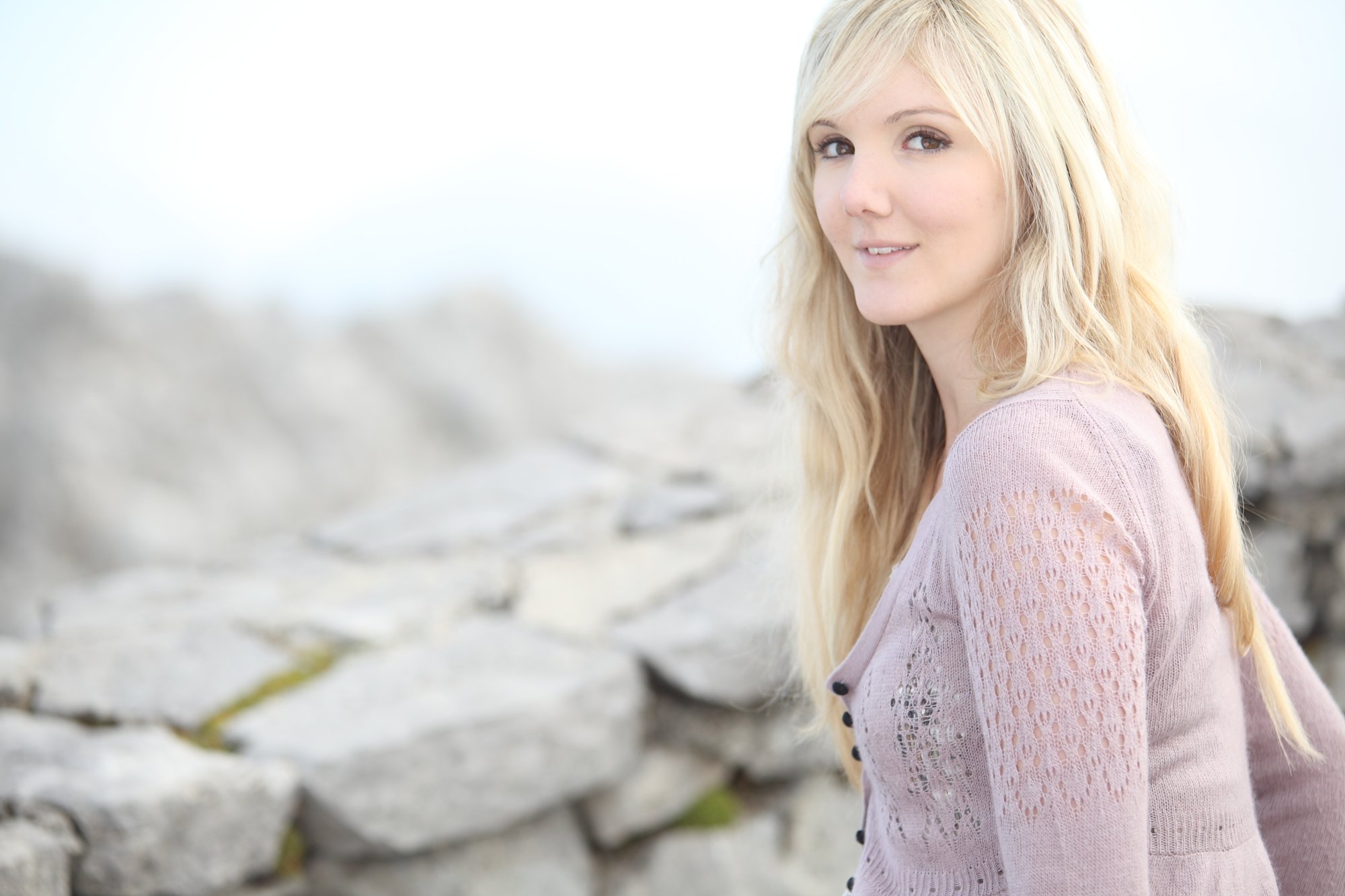As our boots sank into light fluffy snow that sprayed like foam around our ankles, we knew we must have lost the path. Winter walks in Switzerland tend to be prepared - pisted, so that as your boots tread they create a sound like creme brûlée being broken. On our trail, we'd have been better off with snowshoes - with which, in fact, most of our companions on the mountain were kitted out. It was unexpected, let's say, a little like 2020 and so a perfectly fitting end to the year.
We had taken the gondola - a tiny red cabin strung between two wooden huts - out of Illgau, or "Switzerland's sun terrace", a collection of chalets tumbling from a steep, south-facing valley between Muotathal and Ibergeregg in Canton Schwyz. Soon, we arrived in a magnificent white scene, where marshmallow lumps merged with a bleached sky. As we tumbled through the snow, criss-crossing here and there to find any better-trodden routes, we gazed upon the sharp charcoal summits of Stoos-Muotathal and the Schwyzer basin. It was just wonderful to be out, path or no path. We still couldn't work out where we had gone wrong.
The valleys in this part of Switzerland are narrow and sheer, the mountains packed tightly together. Gatekeeper to the kingdom, Grosser Mythen rises up from the lowlands as if surprised at its triangular proportions. It is past this rocky giant that we have driven each day en-route to our Airbnb in Sattel, where we are staying over new year. From the terrace, a white landscape unfolds, studded with shingled farmhouses and barns with low-sloping roofs. On the horizon, Rigi and its Scheidegg peak can be seen, a fan of geological shoulders, like a 1950s skirt or a snowman that has melted. I love to watch the lights twinkling up high after dark.
Back in Illgau, we manage a circular route of sorts, ending up at Illgau St.Karl for the return gondola trip. Albie terms gondolas 'flying buses' and I find this rather charming. The following day, our muscles sore, we tumble through yet more deep mounds of unprepared snow as we make our way along the two-hour panoramic path from Mostelberg mountain above Sattel to Rothenthurm. I wonder if the lack of path preparation is a result of COVID somehow - reduced workforces or a deterrent to keep people off the mountain.
We reach the top of the rotating gondola in a warm light, the sun casting a golden puddle of heat, but once across the 374-metre suspension bridge over the Laui ravine, we enter Mäderen forest on the shady side of the mountain to begin our descent. Here, an almost blue light casts a cold that bites our fingertips. The pines rise khaki-green from cotton-wool snow - it's always Narnia for me, this winter wonderland. Where the view opens up, we can see Lake Aegeri, the Rigi massif and Mount Pilatus.
In Rothenthurm, beyond the woodland, cross-country skiers glide past the train station. It's a bustling, colourful scene but we can hear no noise, as if we are looking at a winter postcard. We take the train back to Sattel as mist is pumped into the valley as if from a snow machine. My cheeks feel like they have an internal radiator as the warmth replaces the cold.
On the final day of our short break, we return to Rothenthurm to walk on the moorland that borders the village. At last, a properly prepared path! It traverses Switzerland's largest upland moor on a high plateau where the Biber river is tangled in frost. The cloud is hanging low so the whole scene is a study in pale grey, definition provided by mountain pines and birches huddled against the cold, and the 14th-century, red-roofed "Türa", the tower that gives the village its name. On a clear day we would be able to see the Höhronen, Morgartenberg and the hills rising to the Katzenstrick pass. Across the plateau are huts that were once used to dry extracted peat, and cross-country loipers bustling with skiers. This is winter walking its finest: a route where you can let loose in a wide scene dotted with trees and wooden huts. But Central Switzerland really has it all, as we have seen in just three days over new year.










